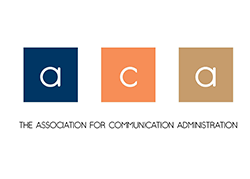Abstract
This article examines the significance of mentoring for women's success in achieving tenure and promotion. The successful tenured female college faculty member in communications, at some point in her career, has been helped by a mentor, usually male. Mentoring is vital for both men and women for faculty success, but women are restricted in forming mentoring relationships. Two categories of women as knowers exist in academe: constructivists and proceduralists. The constructivist views all knowledge as contextual, while the proceduralist woman is invested in learning and applying objective procedures for obtaining knowledge. The functions of mentoring are defined as those aspects of a developmental relationship that enhance both individuals' growth and advancement.
Recommended Citation
Egan, K. S. (1994). Flexibility makes the difference in mentoring women for academic success. Journal of the Association for Communication Administration, 23(2), 87–94.


